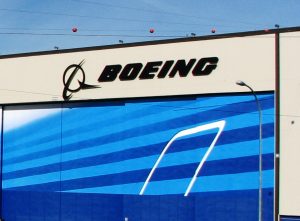 The World Trade Organization (WTO) has ruled that a tax break for Boeing (BA.N) from Washington state was a prohibited subsidy to the company. Washington state’s main business tax for aerospace was put into place in 2013, when Boeing was considering where to base assembly of its new 777X jetliner.
The World Trade Organization (WTO) has ruled that a tax break for Boeing (BA.N) from Washington state was a prohibited subsidy to the company. Washington state’s main business tax for aerospace was put into place in 2013, when Boeing was considering where to base assembly of its new 777X jetliner.
The WTO had earlier ruled a previous generation of tax breaks had fallen into a weaker category of subsidies, which are treated less harshly than “prohibited” aid. The term “prohibited” signifies the WTO’s strictest legal category. The WTO rejected a complaint by the European Union against six further tax measures.
Legislation passed in 2003 established the original aerospace tax breaks for Washington state. Boeing decided to build its 787 in Washington state and took the tax breaks, then five years later decided to put a second 787 assembly plant in South Carolina. The forthcoming 787-10 Dreamliner will be exclusively built in South Carolina. In a 2005 case against the U.S., the WTO ruled the original 2003 tax breaks illegal, but not “prohibited,” so they didn’t have to be withdrawn.
European sources said Boeing would now have to forego billions of dollars in aid. The European Union estimated the illegal aid at $5.7 billion out of an $8.7 billion package of tax measures in Washington. The WTO did not give a value for the banned aid. Boeing said the aid in question would only kick in from 2020 and would be worth $50 million a year.
The ruling is a setback for the U.S. planemaker. “Program accounting” methods used by Boeing factored in future support for the 777X even before money had been received. Boeing will now have to adjust its accounts to reflect the risks resulting from the WTO ruling. Most of Boeing’s factories are based in Washington.
Boeing officials and lawyers said they were confident the ruling would be overturned on appeal. The ruling can be appealed by either side.
The regulatory body is also investigating $22 billion in subsidized loans by European governments to Boeing rival Airbus. The WTO initially ruled in 2010 that government loans to Airbus to launch its A380 superjumbo jet were prohibited subsidies. That ruling was reversed on appeal a year later.
